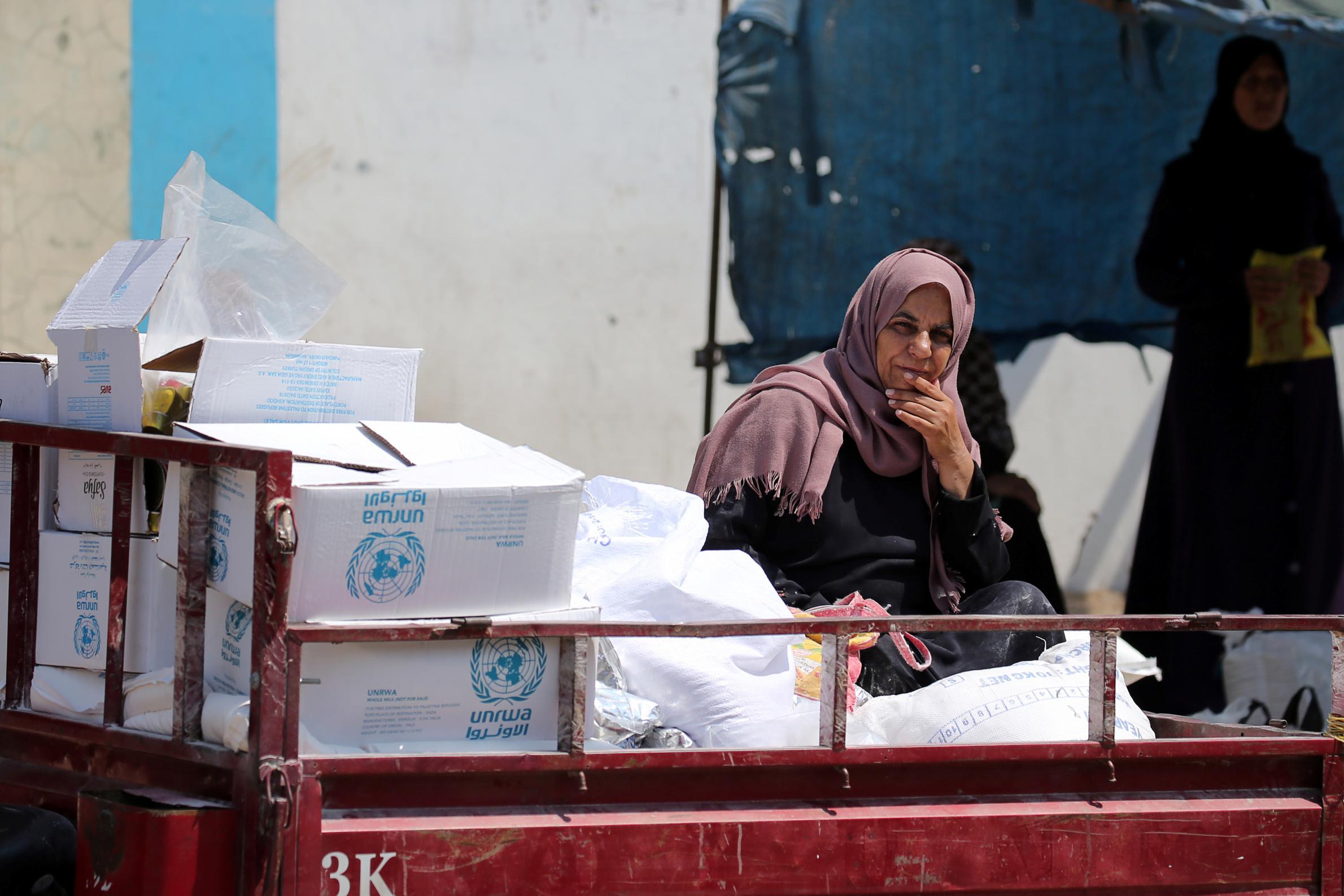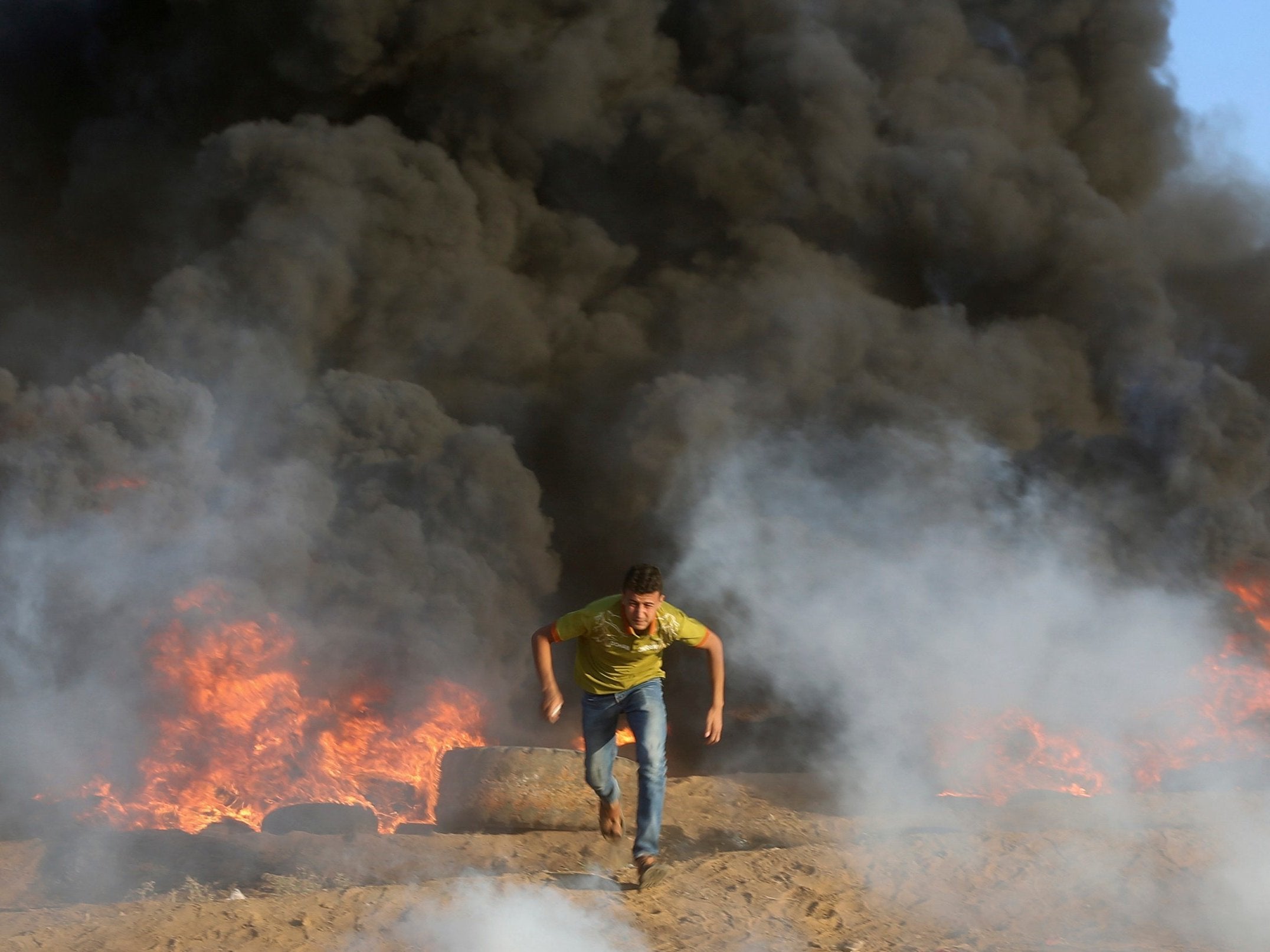Gaza's economy 'collapsing' due to Israeli blockade and massive funding cuts, World Bank warns
Half the population of Palestinian territory living under poverty line and youth unemployment at 70 per cent fuelling unrest, new report reveals

Your support helps us to tell the story
From reproductive rights to climate change to Big Tech, The Independent is on the ground when the story is developing. Whether it's investigating the financials of Elon Musk's pro-Trump PAC or producing our latest documentary, 'The A Word', which shines a light on the American women fighting for reproductive rights, we know how important it is to parse out the facts from the messaging.
At such a critical moment in US history, we need reporters on the ground. Your donation allows us to keep sending journalists to speak to both sides of the story.
The Independent is trusted by Americans across the entire political spectrum. And unlike many other quality news outlets, we choose not to lock Americans out of our reporting and analysis with paywalls. We believe quality journalism should be available to everyone, paid for by those who can afford it.
Your support makes all the difference.Gaza’s economy is in “free fall” and half the population is living under the poverty line, the World Bank has warned, citing a decade-long blockade by Israel and crippling cuts to funding and aid.
The devastating report, released on Tuesday, said the finances of the 25-mile long besieged strip were “collapsing”, liquidity had dried up, and plunging aid flows were no longer able to stimulate growth.
The Palestinian territory’s economy has consequently shrunk by 6 per cent in the first quarter of the year "with indications of further deterioration since then", it said.
Every second person in Gaza’s 1.8 million-strong population is now living in poverty. Youth unemployment, meanwhile, had soared to over 70 per cent.
Marina Wes, World Bank director for Gaza and the West Bank, called for “urgent, real and sustainable solutions to the crisis” warning it was impacting the security situation in the region.
“The economic and social situation in Gaza has been declining for over a decade but has deteriorated exponentially in recent months and has reached a critical point,” Ms Wes said.
“Increased frustration is feeding into the increased tensions which have already started spilling over into unrest and setting back the human development of the region’s large youth population."
The report is due to be presented to the international donor group for Palestinians, known as the Ad Hoc Liaison Committee, at its meeting in New York on Thursday on the sidelines of the UN General Assembly.
The World Bank said the core of the problem was Israel’s decade-long blockade on the strip. It urged Israel to lift restrictions on trade, allow the movement of goods and people, and to extend highly restricted fishing zones to 20-miles - as agreed in the 1990s.
But the report said the situation was recently compounded by a controversial decision by the West Bank-based Palestinian Authority to slash $30m a month of funding to Gaza.
Palestinian president Mahmoud Abbas has reduced or cancelled salaries to its employees in the Strip over the last year in a bid to pressure the Hamas militant group that has ruled Gaza since 2007 to relinquish power.
The United States announced that it was winding down $60m per year of aid and cancelling all funding to the United Nations Palestinian refugee agency has further exacerbated Gaza’s woes.

In total, the World Bank projected the financing gap to be as large as $600m a year, which can not be plugged by the PA, which was facing its own economic troubles.
United Nations officials have already warned that “Gaza can explode any minute."
In recent months, mass protests along Gaza's border with Israel have triggered repeated deadly clashes with the Israeli army, which has seen intense bouts of cross-border fire and prompted fears there could be another war.
At least 187 Palestinians have been killed by Israeli fire since 30 March, when the border fence protests first erupted. A 21-year-old was shot dead on Monday night. One Israeli soldier has been killed in that time.
Israel has defended its actions, saying the protesters were attacking the border and launching incendiary balloons and kites into Israeli lands.
Egypt attempted to broker a long-term truce after multiple ceasefires were violated. On Tuesday, a senior Hamas official denied the talks had collapsed but admitted progress was slow.
"We in Hamas are responsive to these ongoing efforts,” Sami Abu Zuhri, a spokesman for the group said.
Join our commenting forum
Join thought-provoking conversations, follow other Independent readers and see their replies
Comments